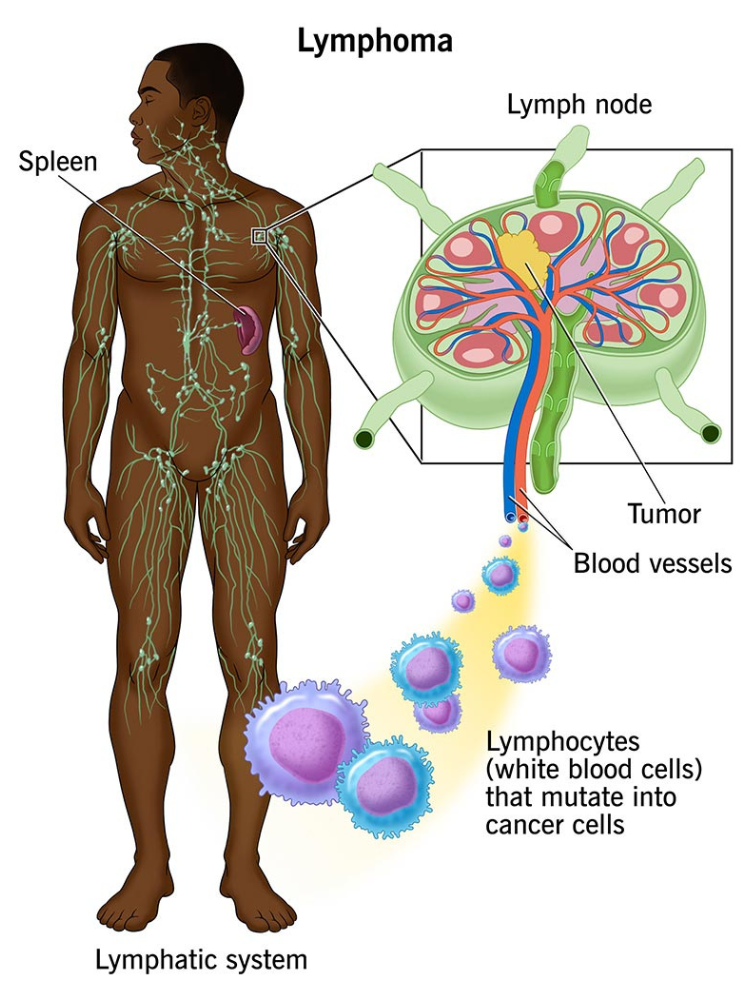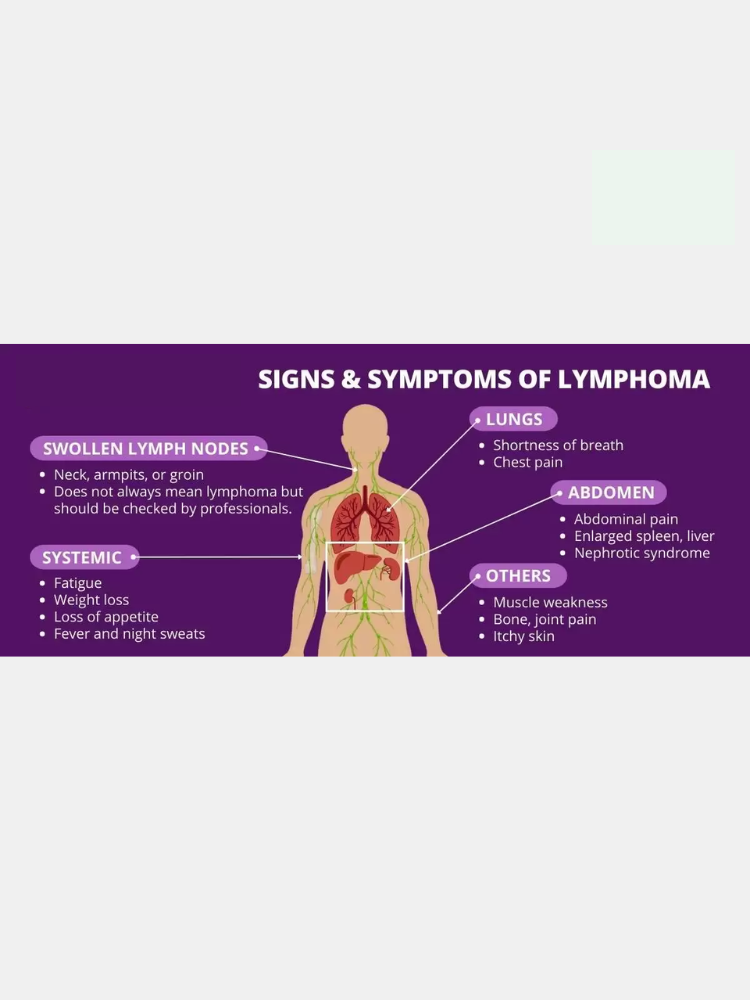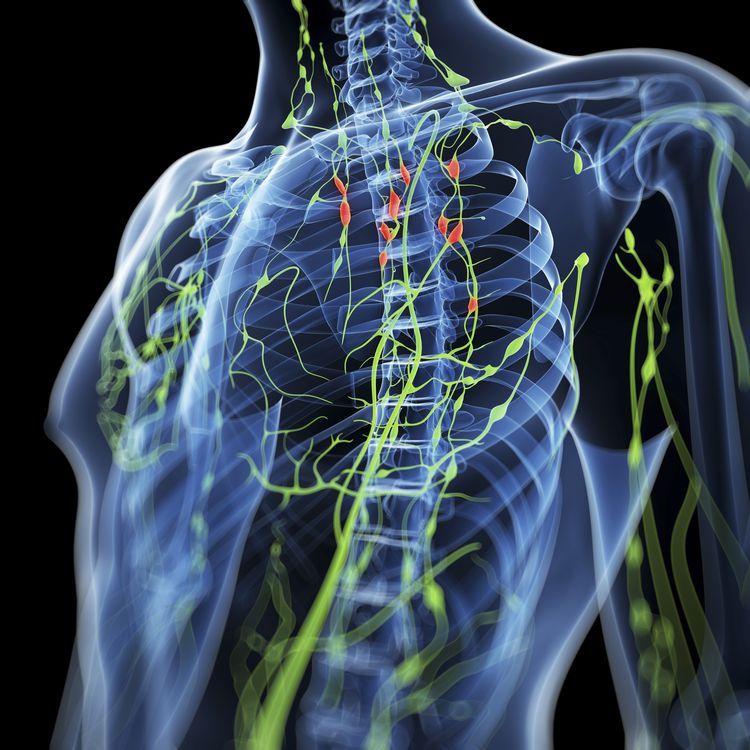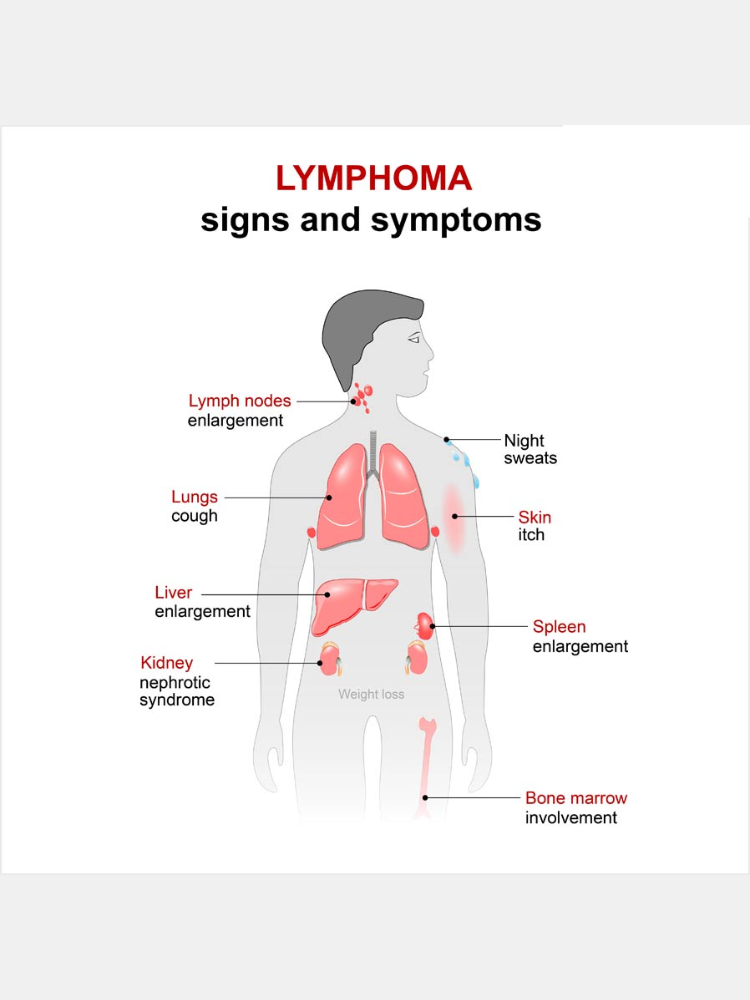Lymphoma Cancer
At North Houston Cancer Clinics, our compassionate professionals and dedicated team guide you through lymphoma diagnosis and treatment. We have many highly advanced technologies available for the accurate detection of lymphoma. You can trust us for your lymphoma journey, and we will fight lymphoma with expertise and care. Contact us now to start your lymphoma journey with us towards healing.
What Is Lymphoma Cancer ?
Lymphoma Cancer Treatments & Diagnostics
- Chemotherapy
- Radiotherapy
- Targeted Therapy
- Stem Cell Transplantation
- Steroids
- Surgery
- Immunotherapy
Professionals insert synthetic antibodies into the patient’s blood in this treatment method.
Lymphoma treatment is getting better day by day with improved technology. The treatment you receive is dependent firstly on the type and stage of cancer, as well as on the patient’s overall health condition.


Causes Of Lymphoma Cancer
Here are common causes Of Lymphoma Cancer:
There are no adequately reported causes of lymphoma, but you might be at risk of lymphoma if you experience these:
- Weak immunity due to organ transplant or having any immune disease experience
- Male gender are more prone to get lymphoma
- People in their late 60s are at high risk of lymphoma
- People who have close relations with lymphoma patient
- People who were treated for cancer or Hodgkin or non-Hodgkin lymphoma in the past
Types of Lymphoma Cancer
Lymphoma is a type of cancer that includes different blood cancers. There are two significant types of lymphoma which include:
1. Hodgkin Lymphoma
2. Non-Hodgkin Lymphoma
Both of these lymphoma can be treatable depending upon the stage and type of cancer. It involves different types of lymphocytes. In the case of lymphoma, cancer starts in the group of lymphocytes fighting infections, while leukemia starts growing abnormally in the bone marrow cells of your body.


Lymphoma Cancer Diagnosis
- Biopsy or Bone Marrow Aspiration
- MRI or Magnetic Resonance Imaging
- PET scan
- Blood Tests
- Molecular Tests
Molecular tests detect changes in proteins and other substances because of cancer. It will help diagnose lymphoma and see your type of lymphoma.
At North Houston Cancer Clinics, we provide lymphoma diagnosis and effective treatment options for lymphoma. Our professional team of oncologists will offer you the best guidance and support throughout your cancer journey.
Symptoms Of Lymphoma Cancer
Lymphoma diagnosis depends on the signs and symptoms that a patient might experience. Following are some common signs of lymphoma.
- Persistent Fever that is not due to any valid reasons.
- Unexplained weight loss that occurs within a short period and can be a symptom of lymphoma
- Swollen lymph nodes are a primary symptom of lymphoma, typically occurring in the neck, armpits, and groin. While initially painless, they can gradually become stiff and painful.
- Some patients with lymphoma experience itching in specific body areas.

